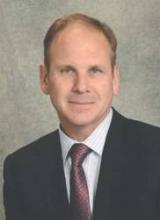I will not argue that resident surgery can be safely performed without risking harm to the patient. If the surgical instructor could exercise complete control over a procedure and correct any mistakes that the trainees made so that the procedure has the same outcome, then it would be ethically allowable. The surgical instructor must be confident that his residents are fully capable of performing the surgery on their own, otherwise it not ethical to subject the patient to this risk.
Dr. Ohye and I are both part of larger divisions that have their own obligations, and we have experience training residents at all levels. We have similar backgrounds, and we both benefited from having mentors who sometimes had masochistic patience in helping us get through surgeries that we probably weren’t ready for. I’m certain that those of us in academic medicine training programs believe that graduated involvement of trainees in patient care is an integral part of the surgical education process, and is critical to society as a whole.
However, the fact that patients may not directly benefit, and may actually be harmed, from the resident’s involvement in surgery creates an ethical dilemma. There is little literature to guide us through this dilemma. Professional societies only advise generally, noting that participation should be voluntary, without providing specifics. Regulatory boards simply set minimum requirements without providing guidance for the educational process. While the ACGME and the residency review committees oversee resident training, the responsibility for successful training is left largely to individual surgeons and individual programs. It’s only recently that the TSDA (Thoracic Surgery Directors Association) adopted the milestone concept that hopefully will help resolve some of these issues.
Consider a medium-sized program of around 300 patients: A difference of just one death, such as 10 or 11 per year, is the difference between being above or below the STS mean. Now that may not be statistically significant, but if you put that number on your website, it becomes important. It’s true that the practice of congenital heart surgery has changed over the last 15-20 years. Our program has seen resident cases roughly halved in the last 10 years. Most patients are operated on at a younger age, palliation is very rare. These are not meant to be excuses for not training residents – they’re just the reality.
The outcomes of surgeries are increasingly scrutinized by regulatory agencies and sources of public reporting. Competition between programs is intense. Patients, parents, and referring providers have become increasingly aware of outcomes to the point that it’s actually not unusual for a patient to ask “What’s your surgical site infection rate? What are the chances I’ll need to have a pacemaker? What are your individual results?” Insurance companies are starting to ask for financial data, economically profiling you to ensure that you’re being as efficient as possible. All of these things are contrary to our ability to train residents effectively.
Because of fear of taking too long or increasing complications, some surgeons say they are much more likely to accept residual defects when operating with trainees. It’s only with familiarity and time that the highly skilled attending and properly motivated resident may work in tandem and produce the best outcome – but not in the 10 cases the American Board of Thoracic Surgery requires.
Dr. Jaggers is the Barton-Elliman Chair in Pediatric Cardiothoracic Surgery at the University of Colorado and co–medical director of The Heart Institute at Children’s Hospital Colorado in Aurora. He argued against having residents perform surgery for board certification.

